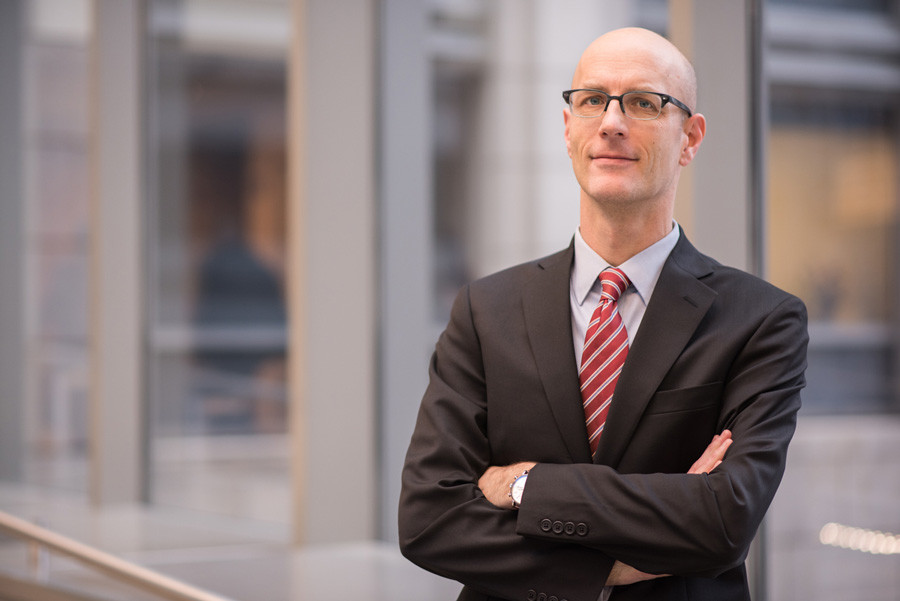New Feinberg urology chair to focus on cancer research, education
Edward Schaeffer
February 2, 2016
A childhood interest in biology and a fascination with the human body drew urologist Edward Schaeffer to a career in medicine.
Schaeffer, who took over as the new chair of the department of urology at the Feinberg School of Medicine and Northwestern Memorial Hospital on Dec. 1, said he was drawn to surgery because he was interested in assembling and taking apart components in the human body.
He also noted his grandfather’s death from prostate cancer had a lasting impact on his life.
“When I was considering what I wanted to do in medicine, I thought I really wanted to try to make an impact on prostate cancer, because somebody who I knew very closely had suffered and died from the disease,” Schaeffer said.
The urologist spent 11 years at the University of Chicago for his undergraduate, medical and doctorate degrees. He said he is honored to serve as the new urology chair and said the position holds a special honor in his mind due to the urology program’s history.
“The department of urology at Northwestern is one of the country’s oldest programs, and it’s one of the country’s best programs,” he said. “For me, to be chosen to run a program and a department that has existed since 1900 is really quite an honor.”
His new position is an opportunity to advance the field of urology through several components, he said. He will work on advancing discoveries through research and training future urologists to be outstanding clinicians and scientists, he said.
“There are many ways that I hope to have an impact in the field, but those two ways — discovery and education — are really two of the ones that I hope to make my biggest impacts in,” Schaeffer said.
Schaeffer, whose lab focuses on prostate cancer, said he studies the molecular biology of aggressive prostate cancer, as well as what features distinguish it from non-aggressive, non-lethal types of prostate cancer.
The surgeon said black men are more likely to be diagnosed with prostate cancer, as well as much more likely to die from the disease than other men. Schaeffer said one of the main focuses of his research is understanding the biology driving that difference.
“I have a major component of my lab that tries to understand the molecular biology behind the disparities in outcomes for men with prostate cancer,” he said.
Schaeffer added he enjoys working with other urologists on a regular basis.
“Urologists are great,” he said. “Interacting with people in medicine who are inquisitive, who want to learn and who are bright — interacting with them in a collaborative way, in a way where I can be a mentor and I can also be a mentee, is really amazing.”
Eric Neilson, Feinberg’s vice president for medical affairs, said Schaeffer was selected for the position in a national faculty search, a process the medical school uses for choosing new senior leadership.
Neilson said Schaeffer is a brilliant surgeon and a fine educator with a great personality and a strong research background.
“We are just delighted to have him,” Neilson said. “It was really a good fit for both of us.”
Email: [email protected]
Twitter: @peterkotecki


